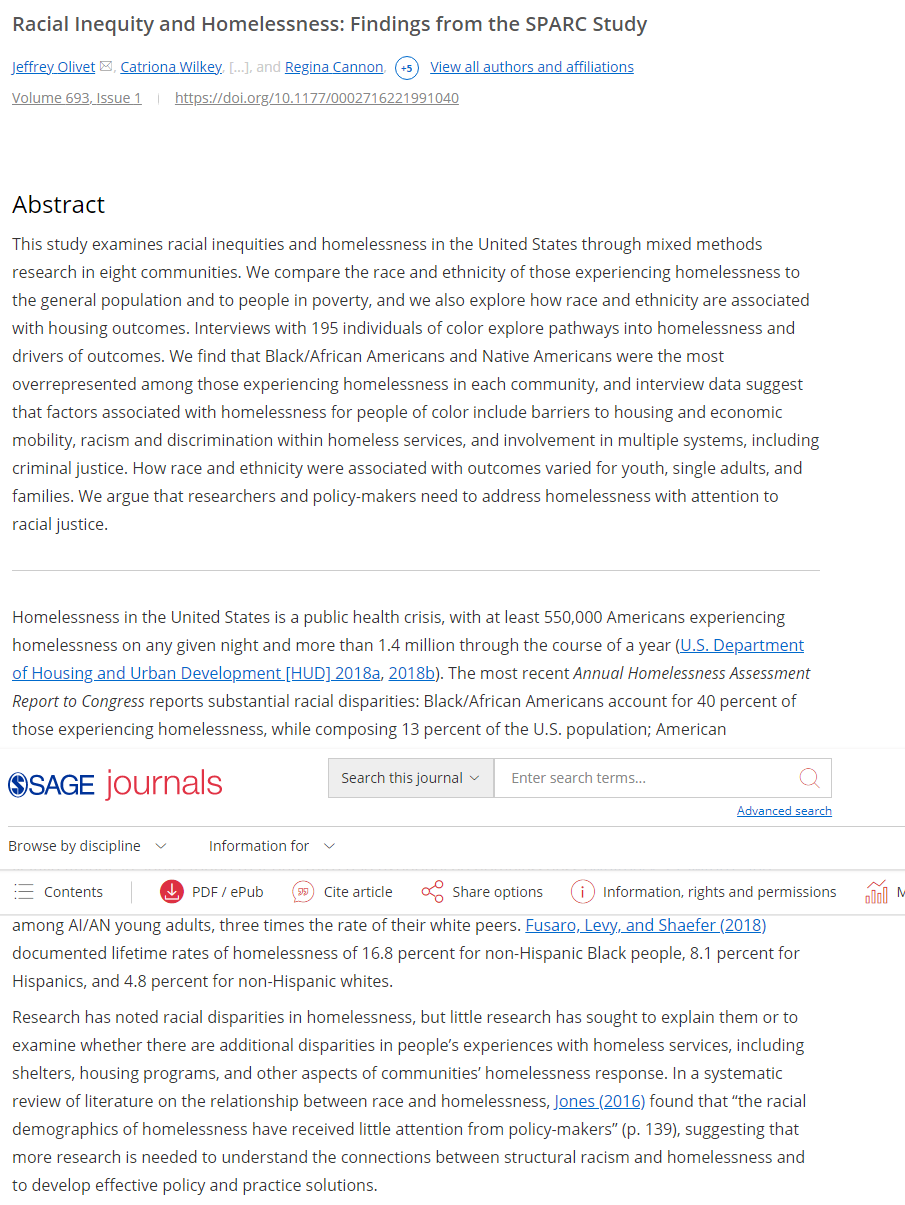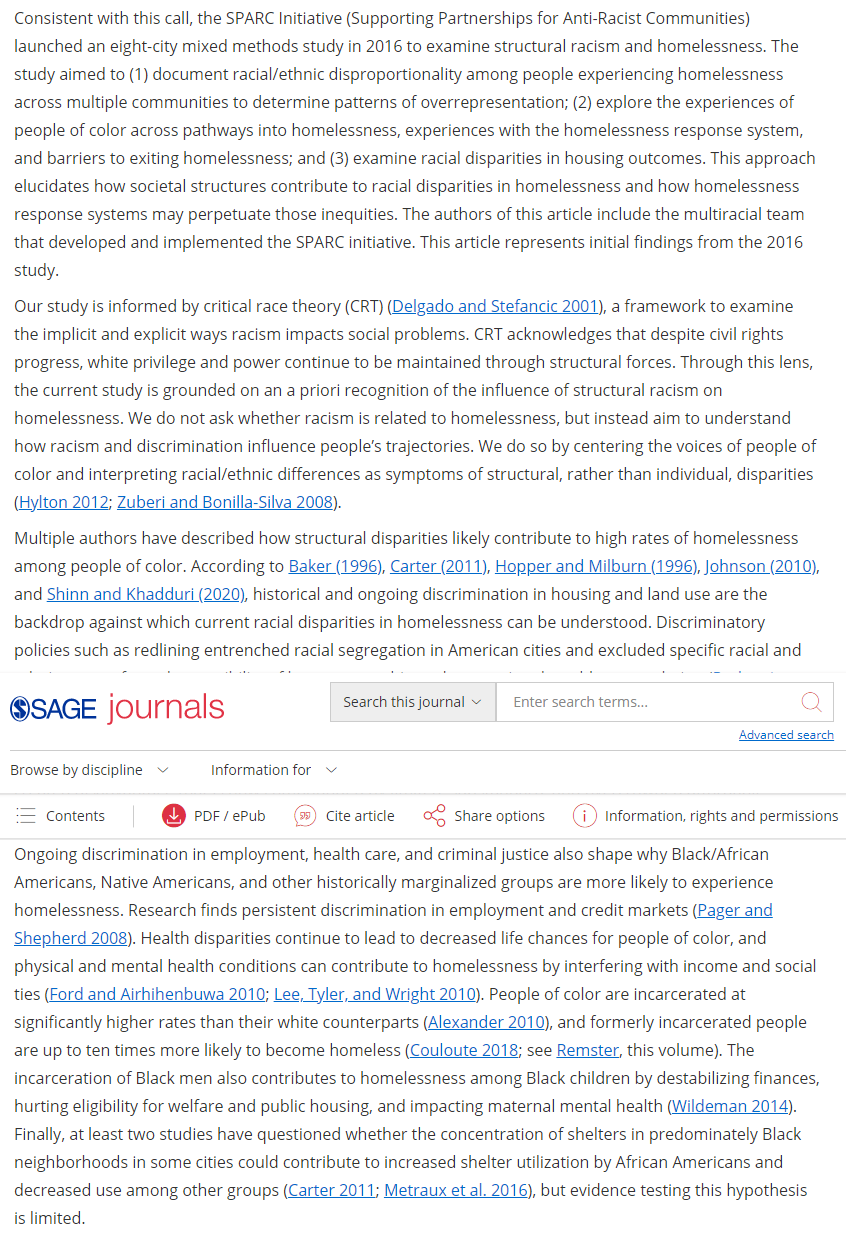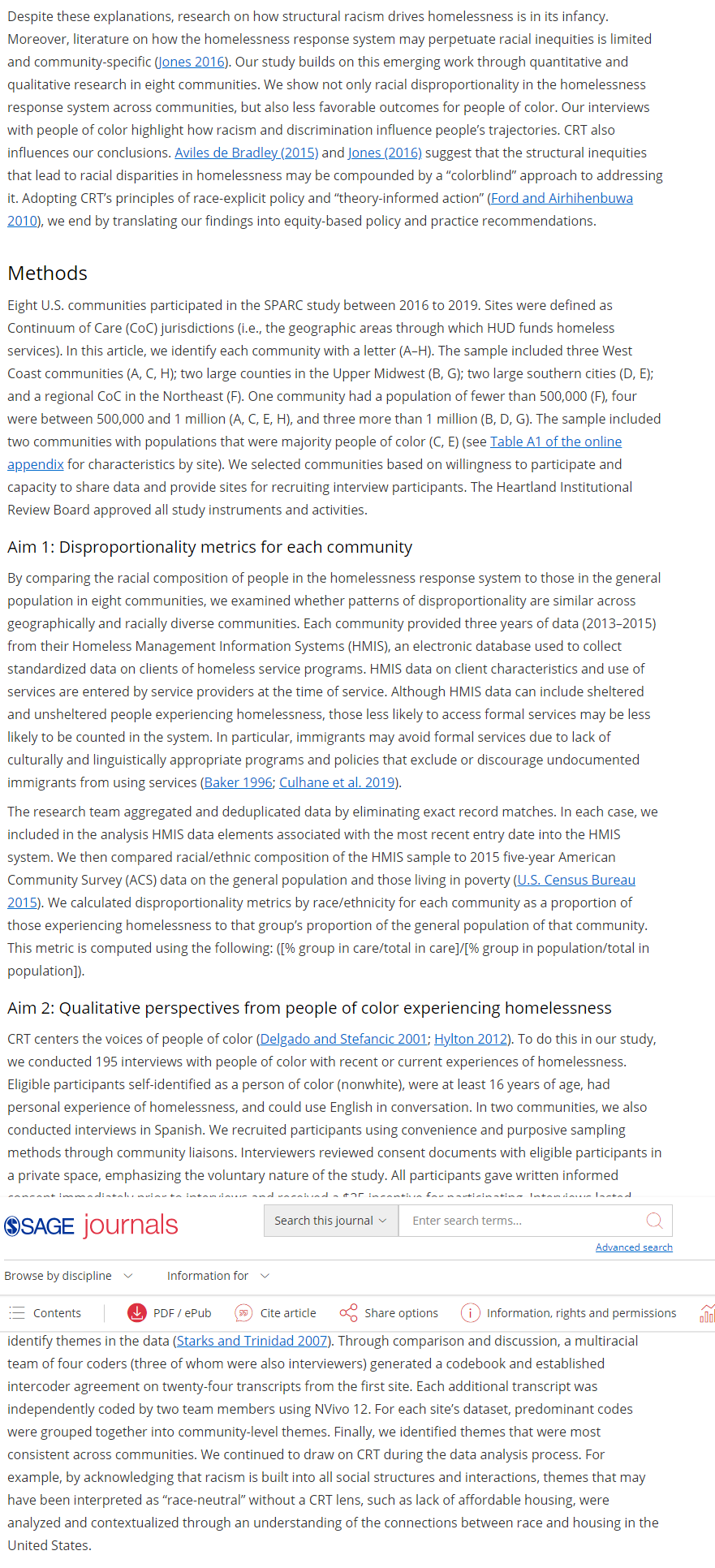Summary
Poverty entails a state where people or households lack the resources to support themselves or purchase the essentials for a happy existence. It can be especially challenging for young people who come from low-income homes. Its impact on Black American youths has been controversial, sparking a heated debate among American society’s poverty reduction supporters and opponents. Even though the U.S. is wealthy and prosperous by global measures, poverty has persisted in the area, with Blacks accounting for a larger share.
Population Description
Black Americans are among the many ethnic groups in the U.S. with African ancestry, yet many have non-black forebears. They are primarily descendants of individuals who were abducted from their native African countries as slaves and had their rights severely restricted. For a long time, they were not allowed to participate in the social, economic, and political advancement of the U. S government. Moreover, Olivet et al. (2021) posit that Africans aged 16 and above, in the U.S. face the social problem of homelessness due to poverty and racism.
Why this Population was Chosen and why it is Significantly Impacted
African Americans make up a stunningly unequal percentage of the poor and homeless despite covering a smaller section of the country’s population. In America, historically marginalized groups endure homelessness disproportionately, but for Black Americans, the discrepancy is particularly pronounced (Olivet et al., 2021). As a result, they face various social problems that significantly affect them. Therefore, they are an excellent example of the group that suffers most from social issues, which is why the population was chosen.
Population Study and the Research Findings
A thorough analysis of the American population reveals that racism is the root cause of the disproportionate number of homeless black individuals, just like many other contemporary manifestations of inequity. Olivet et al. (2021) did qualitative research by interviewing 195 homeless nonwhite Americans. Of these, 64% were black Americans with a background of racism and poverty issues (Olivet et al., 2021). This demonstrates that blacks are the only people in the United States who face the most social problems.
Original Thoughts
After reading the paper, my thoughts about African Americans changed significantly. Initially, I thought every person in the U.S. had the same opportunity, irrespective of color. However, after analyzing the article, I realized that there are white supremacists who have sanctioned blacks against various opportunities and services. In fact, it shed light on why the government introduced the fair housing tax—an act that significantly increased the poverty level and homelessness among blacks.
In conclusion, it is clear that racial disparities, particularly among blacks, play a significant role in the causes of poverty and homelessness in the United States. As a result, most black communities never enjoy the American dream; instead, they continue to remain in abject poverty. This condition significantly hinders the growth and development of the United States, as most poor blacks end up in crimes. Therefore, to address this problem, the government must consistently fight the white supremacists to end racism and curb other social issues the blacks face.
Reference
Olivet, J., Wilkey, C., Richard, M., Dones, M., Tripp, J., Beit-Arie, M., & Cannon, R. (2021). Racial inequity and homelessness: Findings from the SPARC Study. The ANNALS of the American Academy of Political and Social Science, 693(1), 82-100.



